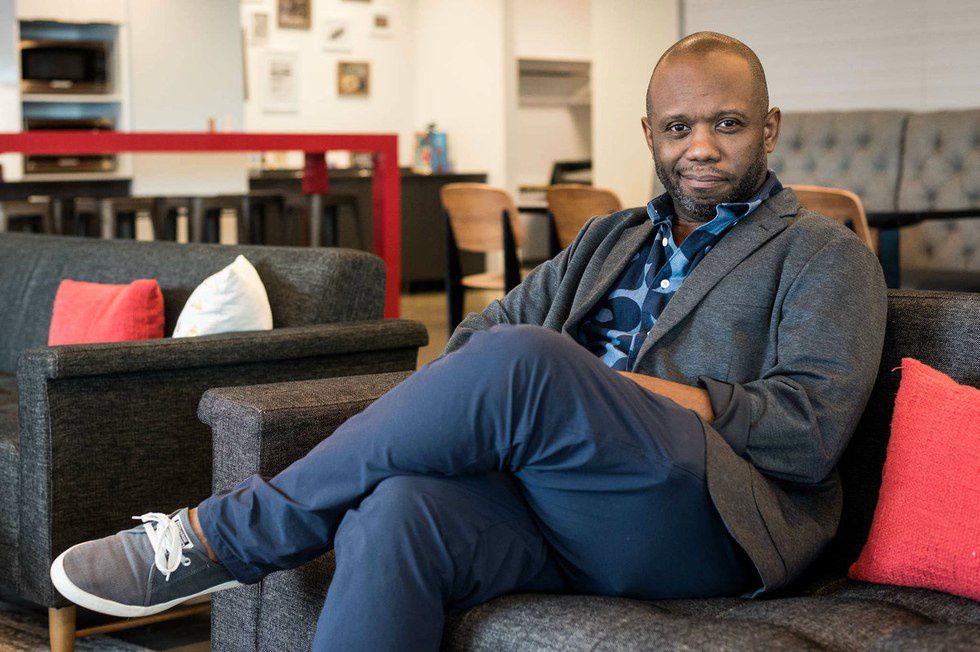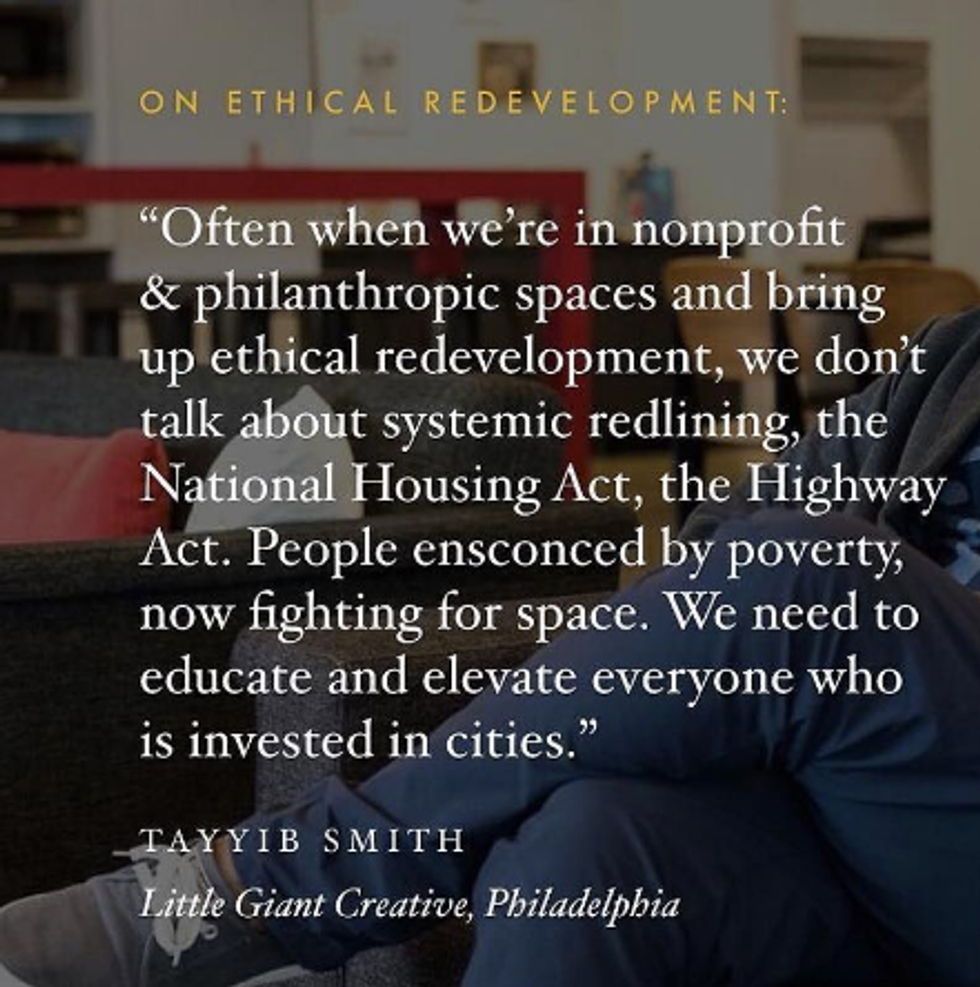Disclaimer: please understand unless text is in quotations, the information provided is an interpretation by this writer upon hearing Tayyib Smith's discussion; for Tayyib Smith's views and projects please check out his social media included below.
Last Thursday my Politics of Diversity professor invited a special guest to come speak to our class about his perspective on diversity in the United States. Mr. Tayyib Smith is currently the founder of Little Giant Creative and publisher of Two.One.Five magazine. Previously he has led a successful career in various facets in the music industry, arts/culture, brand consulting, and multiple medias of event and promotion campaigning (just to name a few of his talents). In talking with my class he very genuinely expressed topics that many of us may not have heard of or considered.
There were many topics that he discussed: I'd like to mention a few things that stuck out to me. Mr. Smith stressed his passion for diverse community development, and through that he talked about this desire to have people in our nation unified. A great example Mr. Smith illustrated was comparing a community to the human body. "You wouldn't say 'there's cancer in one part of my body' and then say 'I'm not going to worry about that'. You might look good on the outside, but on the inside you're dying of cancer." In the same way, if there is an ill in your community and you decide not to address it, it will still end up affecting you in some way.
The great philosopher Socrates got it: he didn’t see any reason to be a bad influence in his community because it would negatively affect him as well, being a part of the community himself. People usually notice that urban areas have a distinct "good side" and "bad side"; realize that doesn't happen on accident. A process called "red lining" paved the way for such segregation and lack of opportunity. People in urban poverty can be considered to be living in “food deserts” and “education deserts”; they might never have access to healthcare, education or nutritional food. The lack of these vital resources has a direct coloration on one's life expectancy: so much so that in Philadelphia there are different life expectancies for each zip code. For example, one neighborhood called “Society Hill” has a higher life expectancy than Japan (which is upwards of 84 years old), while just North of there is a neighborhood that has a life expectancy less than that of Syria, a country in a state of war.
Mr. Smith talked about how for the last 60-70 years the idea of success- what he called the “American Zeitgeist”- was having a big house and yard in the suburbs. Today, the newer generations have a different idea of success. It’s not living in the suburbs, but rather the cities: young people now believe being in the epicenter of culture, art, and entertainment defines success. It is predicted that urban populations will double in the next 30-50 years, and by the end of this century 90% of the world’s population will be living in urban areas. This will lead to many new developments, good and bad; including the displacement of millions of people because of gentrification forcing those in poverty to move out of the area-- but where will they go? These people being displaced from urban poverty-struck areas have inherited a different type of culture than their next door neighborhoods: they may be so near physically, but so far away on the scale societally. As Mr. Smith so smartly observed, “displacement incites violence”. When you live in a culture of deprivation and violence, and then are moved to a new environment and are expected to just begin living a life completely foreign for you- compiled with all the emotions of your new situation, your trained response is violence. Mr. Smith’s company focuses on going across the country and teaching others in education how to speak to those coming from urban poverty, cultural competency, and developing a “global community”. His advice for stepping out of division and toward unity is to “start thinking about how we can have more empathy for others; how can we start looking to communities; how can people open themselves up/ go into a community they aren’t a part of to start a discussion or say ‘how can I be of service to you’. Opening channels of empathetic and constructive conversations are going to be one of the first steps to bring about real change- not to say there won’t be growing pains: “you can’t have change without conflict”. Overall, empathy is the biggest key to unity in our nation.
There are many other things we talked about with Mr. Smith, but I really don’t want to take away from the importance of those things mentioned above. Once again I want to highlight that in the approaching future countless Americans will lose their homes in cities all over the country, and have no place to go. Let's start thinking ahead and start finding solutions to the active discrimination and deprivation to the poverty stricken humans who live among us.
If you’d like to learn more about Tayyib Smith, his businesses and causes, I encourage you to check him out on his social media platforms.
Mr. Tayyib Smith, thank you for expanding my view on the world. I am from an extremely rural area and have never even considered such issues. I am happy to learn so that maybe in the [near] future my generation and I may be able to bring about real change in our country and develop new lasting relationships between all the humans who live here together. As you said, we all have a lot more in common than we realize.













































